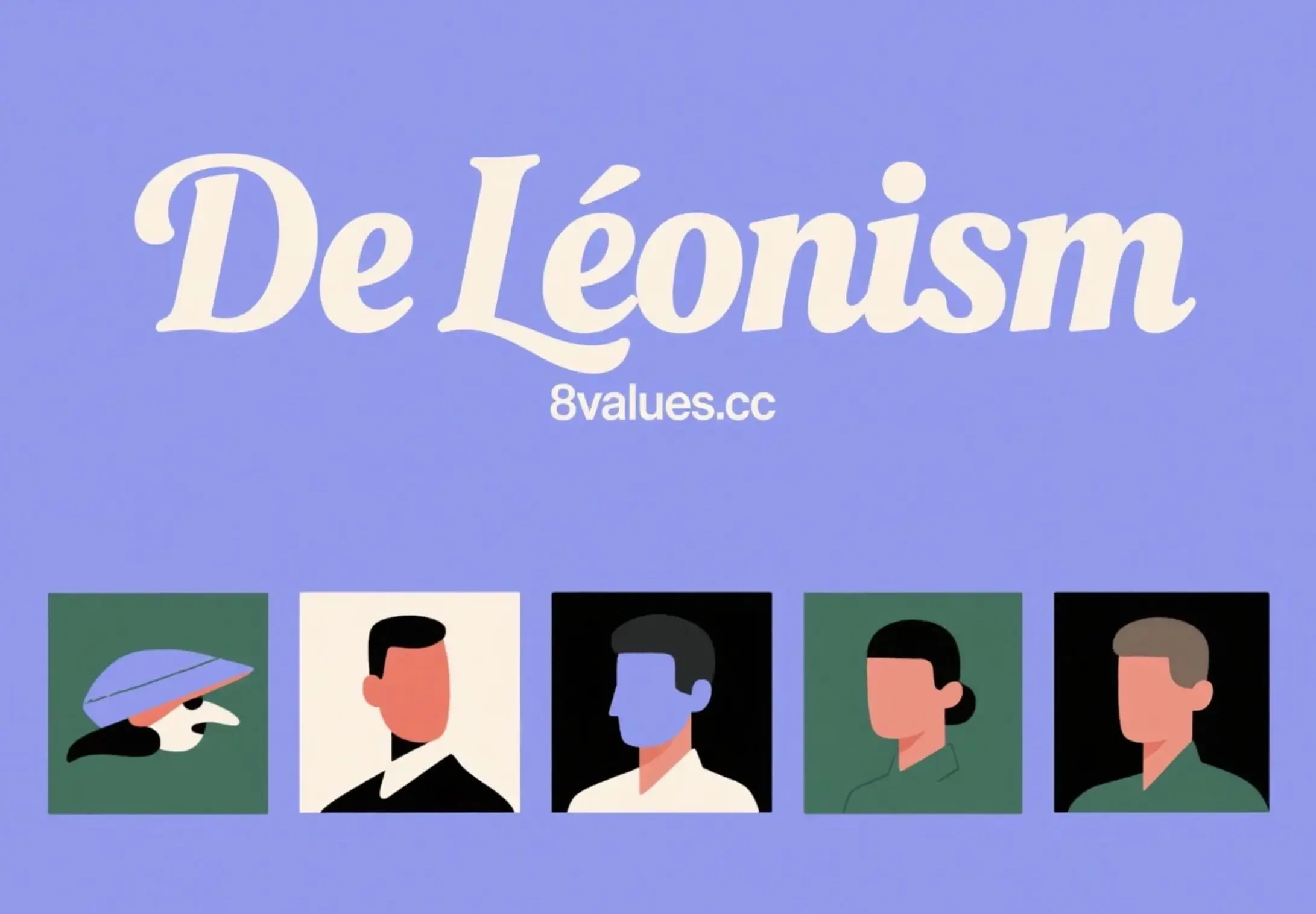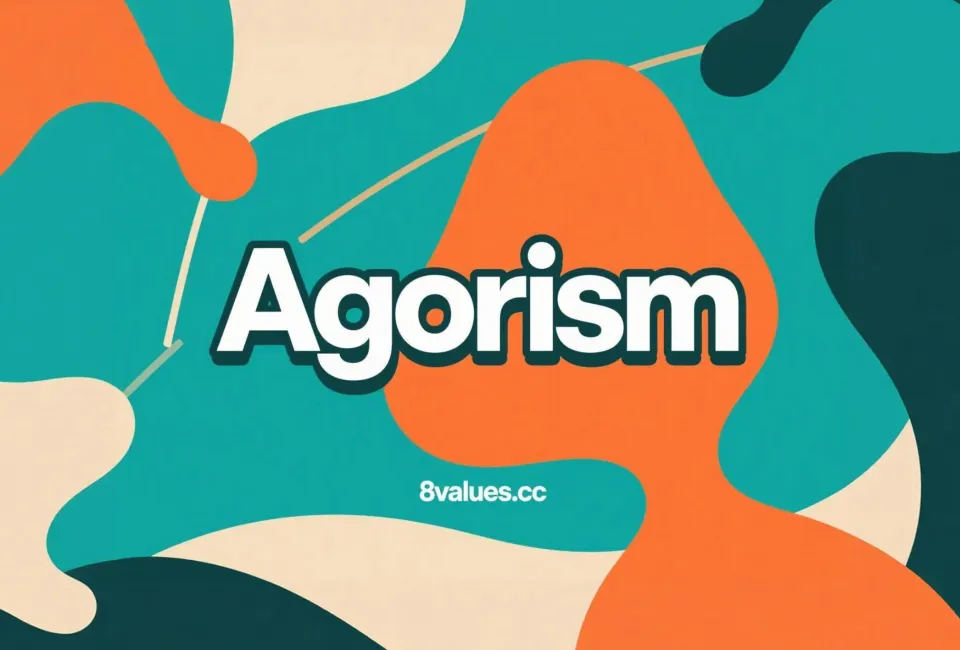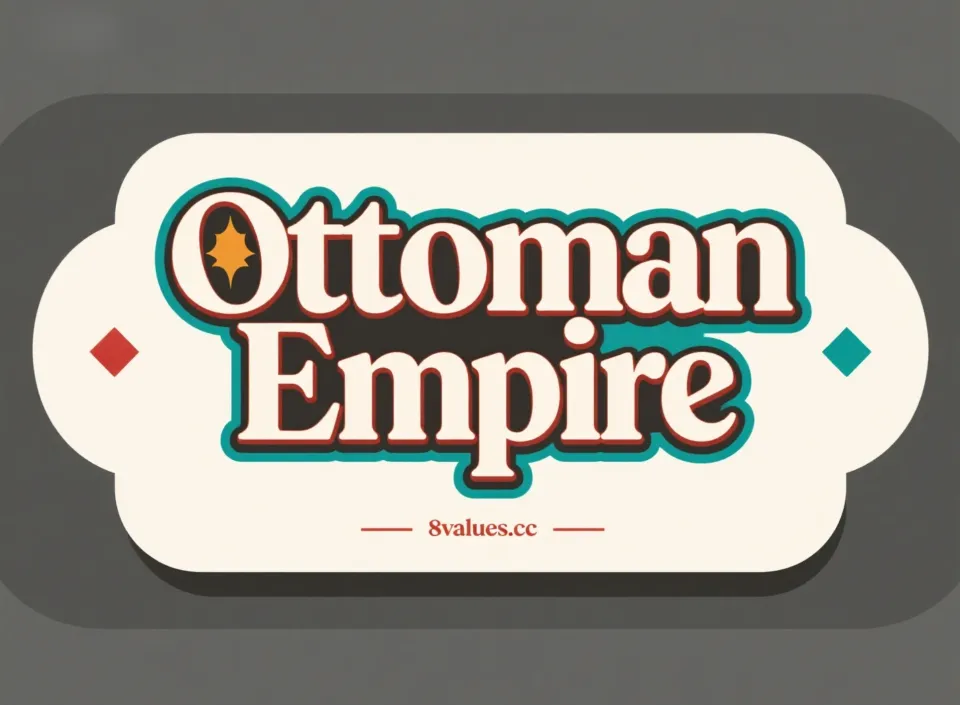De Leonism | 8values Interpretation of ideological ideology of political tests
Deep into the 8 values political test results for de Leonist ideology. This article will explore in detail how Daniel de Leon integrates Marxism with syndicalism, advocates the realization of the unique theories, tactics of socialism, similarities and differences with other schools and their historical heritage through industrial trade unions and political actions.
What is de Leonism? A unique socialist vision that combines Marxism and syndicalism
In the complex and diverse spectrum of political theory, De Leonism, as a unique school of socialist thought, was pioneered by American theorist Daniel De Leon and occupied a place. It cleverly combines Marxist economic analysis with syndicalist organizational form and depicts a blueprint for political and economic transformation through industrial democracy and workers-led . If you find yourself in the 8 values political test coincide with the concept of de Leonism, a deep understanding of this idea will help you grasp its core essence more clearly.
Core idea: The integration of Marxism and syndicalism
The core of the de Leonism lies in its "two-line combat" strategy: establishing a socialist party and a strong socialist industrial trade union at the same time.
- Political organizations (political parties) : mainly responsible for political struggles, such as fighting for power in Congress. However, de Leon believes that political parties themselves are not suitable to continue to maintain political power after taking power.
- Economic Organization (Trade Union) : It is known as the "socialist industrial trade union" and is regarded as a carrier for achieving social change and establishing a socialist system. De Leonism envisions that trade unions will eventually become new forms of government.
In this conceivable, socialism would be a non-state form of planned and organized social production . De Leonism aims to establish an industrial democratic government based on "industrial lines" rather than geographical divisions. This means that people will elect representatives from their specific industries or factories, not from the city they live in. The ultimate vision is a " socialist federal " (also known as the socialist republic ), or even an international organization composed of multiple socialist republics .
It is worth mentioning that there are also two different tendencies within De Leonism: authoritarian de Leonism and liberal de Leonism .
- Under authoritarian de Leonism , democracy in the workplace is republic, i.e. electors rather than policies; planning is decentralized and is often seen as a liberal position; governments directly control the economy .
- Under liberal de Leonism , the workplace is more democratic, and the election is based on policies rather than people; planning is centralized , which is often regarded as an authoritarian position; the economy in turn controls the government, that is, the people have the power to enter and exit all the government's resources.
Revolutionary Strategy: The Double Path of Ballot Box and Industrial Trade Unions
The revolutionary strategy of de Leonism relies on organizing simultaneously in the workplace and in the political arena .
- Political Action : Workers will form a socialist party and organize it in the political field. When the party gains enough support in the election and wins the vote, it will be authorized by the people.
- Economic Takeover : At this time, the socialist industrial unions should have accumulated enough power in the workplace that workers will be able to control the means of production . The de Leonists' move to the workers' committee (organized by industrial trade unions ) is called a " general lockout " of the ruling class , rather than a " general strike " advocated by anarchist syndicalists .
- Government Reconstruction : The existing government will be replaced by a new government elected from within the socialist industrial union . The newly elected socialist government will quickly enact a constitutional amendment or other necessary government structural reforms and then "rest indefinitely" (i.e. disband).
- Industrial Governance : Workshop workers will elect local workshop committees to continue production and elect representatives to participate in local and national committees representing their specific industries . Ultimately, workers will also elect representatives to form a central parliament called the " congress of all industries " which will effectively play the role of the national government. These representatives may be removed at any time. In this way, de Leonism will reorganize national governments along the industrial line , representing the election of industries rather than based on geographical location.
For the de Leonists, the main responsibility of the party is political education , to make workers realize the need to abolish capitalism , and incite the establishment of a class-conscious industrial trade union , and ultimately express the revolutionary empowerment of the working class through the ballot box . The goal of the political party is to capture and dismantle the political state and pave the way for a new form of participatory democracy based on industries .
The debate between de Leonism and reformism
De Leon's strong opposition to reformism was a central element of his thought. He believes that any reforms carried out under the capitalist system are "not worth mentioning" and even equates them with "reactionary measures". This position stems from his "fundamental confusion" of the operation of capitalist economics .
De Leon failed to fully understand that all economic production models will go through stages of prosperity and decline in their historical development. He mistakenly believed that capitalism had entered a "decline period" as early as the 1890s and concluded that " improvement is meaningless." In addition, he believed in a variant of the " iron law of wages " that under capitalism , workers' wages always declined, and therefore the struggle for wages to increase and seek reforms was futile.
However, Marx 's view is very different from that of De Leon. Marx believed that the actual wage level depends to a large extent on the degree of class struggle and clearly distinguishes between absolute poverty and relative poverty among workers. During the rising phase of capitalism (late 19th and early 20th centuries), improvement was not only possible, but also able to bring lasting improvements to the working class and prepare for future revolutionary struggles . De Leon's opposition to reform during this period was wrong, because capitalism was still expanding at that time and was able to bring lasting results through class struggle .
Even in the decline of capitalism (when lasting reforms are no longer possible), the daily defensive struggle of workers to protect themselves from capital attacks is essential and an important part of the revolutionary struggle . De Leon disdained this, believing that except for abolishing the employment and slavery system , all "improvements" are just "imaginations". Marx insisted that workers resisting capital violations through daily conflicts was a necessary preparation for their larger revolutionary movement . This confusion by de Leon also led to his political fall into "parliamentaryism, legitimacy and pacifism", which made his practice consistent with the reformism he despised.
Similarities and similarities with Leninism and other socialist schools
There are significant differences between communism under the tradition of de Leonism and Leninism .
- Vanguard Theory Comparison of Most Support : The principle of de Leonism was formed in the 1890s, earlier than Lenin's 1902 "What to Do?" 》 The vanguard thought formed in 》. The success of de Leonism relies on gaining support from the majority in the workplace and in the ballot box , in stark contrast to Leninism 's idea that a small number of pioneer parties should lead the working class to carry out revolution .
- Government structure : The government envisioned by de Leonism has a highly decentralized and democratic nature, which contrasts with the Marxist-Leninist democratic centralism and the dictatorial nature of the Soviet Union as seen. Although Lenin once acknowledged that De Leon's theory had some influence on the establishment of the Soviet ( Workers' Committee ), he also criticized De Leonism as one of the "unfeasible" tendencies of "left-wing communism".
- "Impossible" : De Leonism is sometimes labeled as " Impossible " due to its anti -reformism position. The de Leonist party has been criticized for its " doctrinism " and " sectarianism ". They reject Leninism and the vanguard theory, and also exclude the traditions of " democratic socialism " and " social democracy ". De Leon and his followers frequently criticized the democratic socialist movement , especially the American Socialist Party , as they were " reformists " or " bourgeois socialists ."
De Leonism shares certain characteristics with anarchic syndicalism , such as managing the workplace through trade unions . The Socialist Labor Party (SLP) was once a member of the World Federation of Industrial Workers (IWW), which is mainly composed of anarchist syndicalists . However, the practical difference between De Leonism is that Daniel De Leon and the modern SLP still believe in the need of central government to coordinate production and argue that in addition to trade union actions, revolutionary parties need to be used to achieve their goals. De Leon also denied that the " general strike " advocated by anarchist syndicalists was denied. Despite being most similar to anarchism , de Leonism itself is not anarchism , but a kind of free will Marxism .
A unique perspective on bourgeois democracy and proletarian dictatorship
De Leonism's position on bourgeois democracy and proletarian dictatorship is particularly unique and even "strange".
- Belief in the Peaceful Revolution : De Leon firmly believes that peaceful revolution can be achieved through the ballot box in the United States. He regarded votes as " the weapon of civilization " and believed that no revolutionary movement could ignore it. He even believed that the American bourgeoisie was a "cowardly liar" and lacked the "heroic" spirit in the "feudal" tradition, so a peaceful revolution was possible in the United States, but not in Europe. Even today, followers of De Leonism still hold this simple belief that after the socialists win a majority in Congress, they can pass a resolution to abolish the government and hand over the power to the socialist industrial union .
- Differences with Marxism on the State : However, after the experience of the Paris Commune in 1871, Marx and Engels revised their early views, making it clear that the working class cannot simply “master the ready-made state machine and use it for their own use” but must destroy it. De Leon misinterpreted Marx's argument in the Communist Manifesto as winning the battle of democracy , while Marx originally meant to seize power through violent revolution . Marxism believes that bourgeois democracy is essentially the class dictatorship of the bourgeoisie over the working class .
- Rejection of the dictatorship of the proletariat : De Leonism refuses to recognize the dictatorship of the proletariat as a necessary form of the transition period of capitalism to communism . He regarded Marx's use of the term " proletarian dictatorship " as "error." He believes that the state will disappear overnight, pass a resolution to dissolve the state and transfer social power to the socialist industrial union to achieve it. The " industrial state " envisioned by de Leon would be a pure administrative body, not a tool of class rule . He even believed that the goal of working-class political parties was "pure destructive", that is, it would be dissolved immediately after the political state was abolished.
Marx and Engels insisted that class struggle would inevitably lead to proletarian dictatorship , which itself was only a stage of transition to all classes and a classless society . During this transitional period, the state must serve as a tool of class oppression to suppress the bourgeoisie .
Although in a 1907 article, de Leon recognized the need for transitional periods and pointed out that the proletariat must conduct political organization to control the transitional states and introduce socialism . But this contradicts the core theory he has adhered to for a long time, and later SLPs tend to ignore this view. Therefore, this position of de Leonism made it regard it as an " immature revolution" when the Russian Revolution broke out, because the Bolsheviks established the proletarian dictatorship rather than immediately handing over power to industrial trade unions .
Historical Footprints and Legacy: The Influence of Daniel De Leon
Daniel De Leon (1852-1914) was a key figure in American socialist thought , a radical American trade union organizer, socialist theorist , scholar and politician. Born in Curacao, he belonged to a Spanish-departed Jewish family, studied in Europe, later moved to the United States and received his Bachelor of Laws degree from Columbia University.
De Leon became a socialist in 1886 and joined the American Socialist Labor Party (SLP) in 1890. The following year he became the editor of its English newspaper "The People" and became a leader in the party. He has run for mayor of New York City several times. De Leon strongly criticized the American Federation of Labor (AFL) industry unionism , arguing it as divisive. To this end, he assisted in the establishment of the Socialist Industry and Labor Alliance (ST&LA) in 1895, aiming to promote industrial trade unionism that conforms to socialist principles . In 1905, he also founded the World Federation of Industrial Workers (IWW) with Eugene V. Debs and Bill Heywood . However, due to ideological differences on the role of political parties , he later parted ways with IWW , accusing IWW of being controlled by the "bummery" and founded the Detroit IWW (later renamed the International Federation of Industry ) in 1915, which was eventually dissolved in 1925.
De Leon died on May 11, 1914 in New York City. Despite his premature death, his thoughts had a profound impact on the global socialist movement , especially inspiring the establishment of the Socialist Labor Party in Britain, Canada and Australia.
The De Leonist movement was criticized for its dogmatist and sectarian stance. They failed to master the Marxist revolutionary method and simplified Marxism into dogma established by de Leon, thus making themselves a narrow and introverted sect that was separated from the international revolutionary Marxist movement . Their " American Exceptionism " view, which argues that the specific situation in the United States makes class struggle unique and refuses to recognize that the experience of workers' movements in other countries applies to the United States, exacerbates this isolation.
Despite these controversies and limitations, De Leonism adhered to the proletarian internationalist position in both world wars, which was to some extent an embodiment of its political rigidity. However, its failure to reflect on the major issues widely discussed by the left-wing communism in the 20th century, such as the significance of the decline of capitalism , the nature of the world crisis , and the changes in the conditions for class struggle , has caused its thoughts to stagnate to a certain extent.
Conclusion: Understanding the meaning of de Leonism in today
De Leonism is a thought-provoking school in socialist thought . It uniquely combines the theoretical depth of Marxism and the practical organizational power of syndicalism . It emphasizes the role of industrial trade unions as the cornerstone of the future social structure and the idea of achieving a peaceful revolution through the ballot box , making it unique among many socialist theories.
Although De Leonism has also faced severe criticism in history of its economic analysis, class struggle strategies , understanding of bourgeois democracy , and denial of proletarian dictatorship , its firm opposition to reformism and its vision of industrial democracy are still being studied and discussed in the socialist circle .
By understanding de Leonism , we have a glimpse of the different explorations and struggles on the socialist revolutionary path. If you are curious about your political stance or want to explore further interpretations of ideological results , visit the 8values Political Test and conduct a political spectrum coordinate analysis , which will provide you with an interesting perspective to understand yourself and the world.






